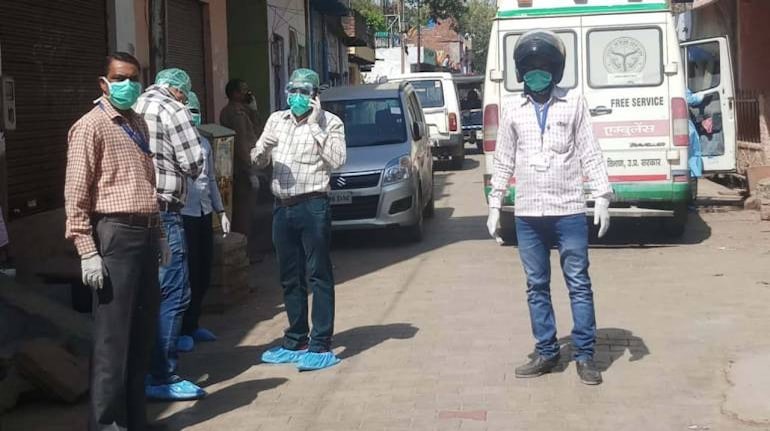

Our worlds have changed. We used to say it's difficult to survive out there. But for many living in COVID-19 hotspots around the country, it is difficult to survive inside.
The Delhi and Uttar Pradesh governments have announced several hotspots in order to prevent further spread of COVID-19. While the Delhi government identified and sealed 20 COVID-19 hotspots, the UP government has applied curfew-like restrictions in hotspots in as many as 15 districts -that includes Noida, Ghaziabad, Meerut, Lucknow, Kanpur, Varanasi, and Agra.
This means in such places no one can step out even for groceries unlike the conditions of a lockdown that the whole country is under since PM Modi announced it on March 24.
There are varying degrees of lockdowns and curfews that administrations are resorting to.
A lockdown, as we all know by now, basically means that people need to stay indoors, but can go out to buy essential commodities.
Besides, some states have imposed a curfew, where everyone is compelled to stay at home, and people cannot venture out without the permission of the police.
It is stricter than imposing Section 144, in that people can go out of their house, but cannot move or gather in groups of four or more. Violation of curfew can lead to immediate detention by police.
You can read more about such restrictions in this story.
In UP, where districts are under curfew-like restrictions, only those localities that are hotspots; that is, where COVID-19 positive cases have been detected are sealed off. In other areas, the lockdown is in place as before.
As the hotspots are sealed off, the restrictions in these pockets will be stricter than those under the lockdown already in place.
What's prohibited in hotspots and sealed areas?
> No movement allowed whatsoever in such areas people to stay inside their homes.
>Residents cannot go out of their houses for buying groceries or medicine.
> All entry and exit points are sealed and barricaded with the presence of law enforcement officers for patrol in the area.
> Visiting banks, ATMs and offices as they are closed.
>Gathering inside the sealed zone is also banned.
>For people engaged in essential services, going out without a pass is not allowed.
>Any kind of media coverage is not allowed.
The authorities are supposed to take care of supply of essential commodities, medicines and facilitating people with needs that involve medical emergencies.
The authorities are conducting door-to-door contact tracing and testing in these sealed areas alongwith sanitisation.
Following the Bhilwara example?
Rajasthan's Bhilwara district is being lauded widely for its efforts in containing the spread of the novel Coronavirus.
Sealing-off areas where COVID-19 cases have been detected in hotspots is one of the things that Bhilwara did.
Steps that are being taken now in Maharashtra, UP, and Delhi among other states were already taken by Bhilwara authorities early on that has led to only 28 cases in the district as against 489 in the whole state.
What are the ground realities?
People are facing difficulties after more pronounced restrictions were put in place, Abhishek Singh, a resident of Agra — that has been declared as one of the COVID-19 hotspot districts in UP — told Moneycontrol.
The 25-year-old boy lives in Agra’s Kishorpura, which was sealed on April 8 after a family of five members was found COVID-19 positive on his street.
“The police took the whole family, admitted them to SN Medical College and sanitised the whole area. The streets have been sealed and two constables are permanently stationed outside our street,” he said.
Also Read | Coronavirus hotspots in Delhi, Noida - complete list
Abhishek further said an ambulance with paramedics came to take the family. Nobody was allowed to look. A fire brigade vehicle sanitised the houses from the outside. Police patrolling in the area has been intensified.
This is where the problems for the locals start, he said.
“We have been given a number for any help such as groceries but the number stays engaged. There should have been facilities, such as a mobile van, that could have helped us with daily-use purchases,” he added.
Vegetable and milk vendors, who used to visit earlier, have been also asked not to sell stuff in these sealed areas.
(With inputs from PTI)
Follow our full coverage here.
Discover the latest business news, Sensex, and Nifty updates. Obtain Personal Finance insights, tax queries, and expert opinions on Moneycontrol or download the Moneycontrol App to stay updated!